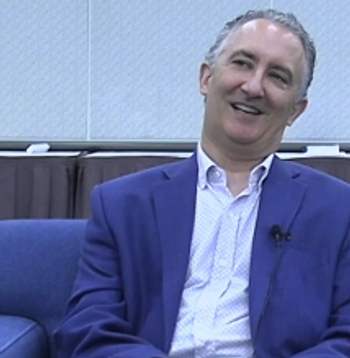
The British Psychological Society Enters the Silly Season
The British Psychological Society has issued a press release that rivals the silliness of DSM-5 and the National Institute of Mental Health.
We have entered a silly season of interacting absurdities committed by the American Psychiatric Association, the National Institute of Mental Health, and the British Psychological Society.
It started with DSM-5 including untested new diagnoses that will mislabel millions of the worried well and distract resources away from people who really need help.
Then, NIMH got into the act with a press release that recklessly renounced all DSM diagnoses as invalid. But NIMH failed to admit that it has nothing to offer in its place except the promise of a future biological understanding of mental illness -- something that will take decades to deliver, assuming it can ever be delivered at all. Clearly, NIMH was puffing up its research agenda to gain congressional support for President Obama's brain initiative-- a greatly oversold (but nonetheless worthwhile) endeavor.
But no one at the institute paused to calculate the possible harmful impact on patients-- who might assume that psychiatry doesn't know what it is doing, so why stick with needed treatment.
And NIMH should be called NIBR (National Institute of Brain Research) since it consistently fails to live up to the Mental Health part of its name and seems totally oblivious to the current needs of the patients it is meant to help.
Example: NIMH never issues similarly bold press releases to decry the fact that patients are suffering from draconian budget cuts and our disorganized nonsystem of mental health care. It should, but doesn't, draw press attention to the one million psychiatric patients now languishing in prisons because of nuisance crimes that could have been prevented had they ready access to community treatment and decent housing.
And now the British Psychological Society has joined the parade of extremist posturing. BPS proposes its own radically different (but equally quixotic) paradigm shift-- renouncing the brain as a source of mental illness and questioning whether schizophrenia and bipolar disorder are useful constructs for current diagnosis and treatment.
As substitute, BPS provides an empty and vague promise that mental health problems might somehow be framed in a
This triad of Alice Through The Looking Glass foolishness would be funny were it not so sad and dangerous. Absurd NIMH biological reductionism finds its mirror reflection in absurd British Psychological Society pscho-social reductionism. Leaders of powerful organizations (who should know better) seem to be suggesting that complicated mental health problems can be reduced to their contrasting simple answers. But each has nothing substantive on offer-- just dueling inflammatory and inaccurate press releases that muddle the issues and mislead the public.
We need to return to a three dimensional model of mental illness that attends to the biological, to the psychological, and to the social.
We need a diagnostic system that focuses on the basic disorders that can be assessed reliably and treated effectively.
We need additional resources so that people who need treatment can get it.
We need leaders who bloviate less and do more to meet the current unmet needs of patients -- leaders who are not so enchanted with their utopian grand designs for the distant future that they lose interest in the urgent problems we face in the present.
Ambition has blinded the leaderships of DSM-5, the NIMH, and the BPS. Each has prematurely promised a grandiose paradigm shift when none is remotely possible. Paradigm shifts emerge from new scientific findings-- not from wishful thinking or public posturing. A little
Humpty-dumpty institutional pride has led to a free fall in credibility with grave collateral damage to patients and practitioners. Patients confused by these ridiculous controversies may well lose faith and miss out on needed treatment. Practitioners (who are themselves generally humble and competent folk) deserve leadership that is not so arrogant and bumbling.
It is past time to have just one thing in mind in preparing diagnostic manuals or statements to the press. Will this help or hurt our patients' access to quality care? All three organizations have very badly flunked this test.
So I offer two simple pleas to the American Psychiatric Association, to the National Institute Of Mental Health, and to the British Psychological Society. First, spare us your paradigm shifts. Second, do whatever you can right now to promote better care for our patients.
Newsletter
Receive trusted psychiatric news, expert analysis, and clinical insights — subscribe today to support your practice and your patients.







